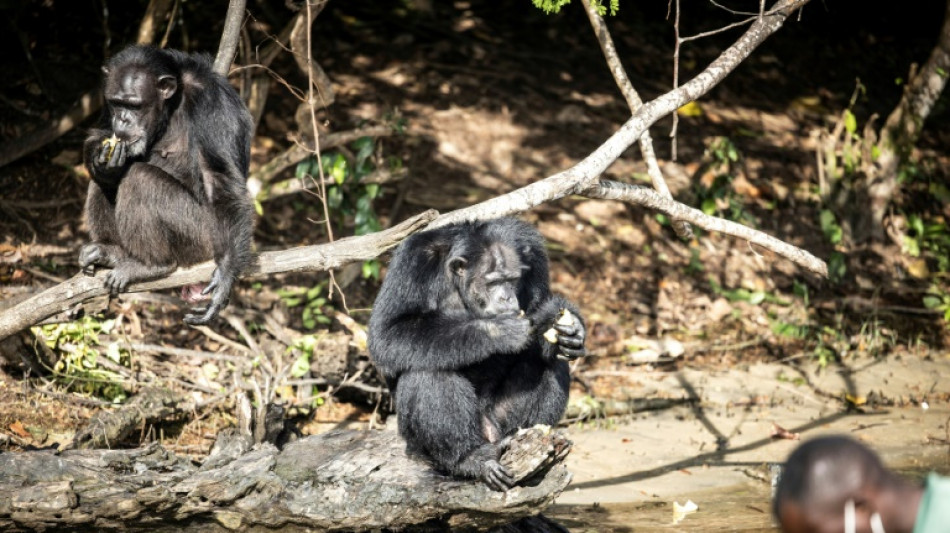
-
 End of Russian gas via Ukraine sparks unease in eastern Europe
End of Russian gas via Ukraine sparks unease in eastern Europe
-
Zelensky vows Ukraine will do everything in 2025 to stop Russia

-
 Island-wide blackout hits Puerto Rico on New Year's Eve
Island-wide blackout hits Puerto Rico on New Year's Eve
-
Serbia enters New Year with student protests over train station tragedy

-
 Romania, Bulgaria join borderless Schengen zone
Romania, Bulgaria join borderless Schengen zone
-
US Capitol riot fugitive seeks asylum in Canada

-
 Musk flummoxes internet with 'Kekius Maximus' persona
Musk flummoxes internet with 'Kekius Maximus' persona
-
US stocks slip as European markets ring out year with gains

-
 Olmo's Barcelona future in air over registration race
Olmo's Barcelona future in air over registration race
-
Venezuela opposition urges protests against Maduro's inauguration

-
 Syria's de facto leader meets minority Christians
Syria's de facto leader meets minority Christians
-
Suriname ex-dictator Bouterse to be cremated on Saturday

-
 £1.5 mn reward offered after 'brazen' London gem raid
£1.5 mn reward offered after 'brazen' London gem raid
-
Zimbabwe abolishes the death penalty

-
 Barcelona race against clock to register Olmo
Barcelona race against clock to register Olmo
-
Arteta wants Arsenal to hammer away in title race

-
 Panama marks canal handover anniversary in shadow of Trump threat
Panama marks canal handover anniversary in shadow of Trump threat
-
Gaza hospital chief held by Israel becomes face of crumbling healthcare

-
 Russian advances in Ukraine grew seven-fold in 2024, data shows
Russian advances in Ukraine grew seven-fold in 2024, data shows
-
US, European stock markets look to ring out year with gains

-
 US farmers fret over Trump's deportation plans
US farmers fret over Trump's deportation plans
-
BBC celebrates 100 years of 'poetic' shipping forecast
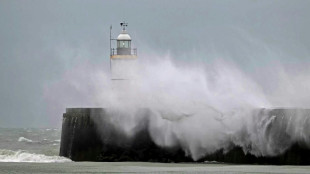
-
 West Ham's Bowen sidelined with foot fracture
West Ham's Bowen sidelined with foot fracture
-
Global markets rode AI, interest rate roller coaster in 2024

-
 Ocalan: PKK chief held in solitary on Turkish prison island
Ocalan: PKK chief held in solitary on Turkish prison island
-
European stock markets end year with gains

-
 Yemen's Huthis a 'menace' for Israel despite weakened Iran: analysts
Yemen's Huthis a 'menace' for Israel despite weakened Iran: analysts
-
Rooney exit extends managerial struggles for England's 'golden generation'

-
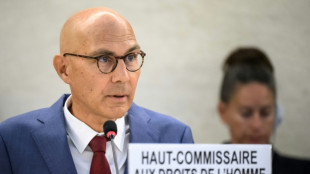 Gaza healthcare nearing 'total collapse' due to Israeli strikes: UN
Gaza healthcare nearing 'total collapse' due to Israeli strikes: UN
-
German leaders hit back at Musk's support for far right

-
 Southgate won't be 'Sir' at home after knighthood
Southgate won't be 'Sir' at home after knighthood
-
Rooney leaves Plymouth after just seven months in charge

-
 Kyrgios needs 'miracle' after return from long injury layoff
Kyrgios needs 'miracle' after return from long injury layoff
-
Raducanu pulls out of Australian Open warm-up with back problem

-
 Celebrated S.African contemporary dancer Dada Masilo dies aged 39
Celebrated S.African contemporary dancer Dada Masilo dies aged 39
-
Five talking points at the midway point of the Premier League season

-
 Angelina Jolie and Brad Pitt reach divorce settlement
Angelina Jolie and Brad Pitt reach divorce settlement
-
Djokovic, Sabalenka win season-openers but Kyrgios loses on return

-
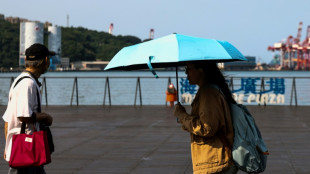 Taiwan says 2024 was hottest year on record
Taiwan says 2024 was hottest year on record
-
China says shared Covid information 'without holding anything back'
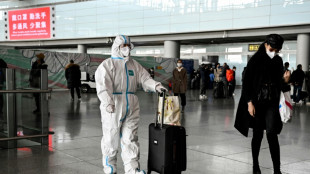
-
 Kyrgios goes down fighting on return, Sabalenka wins season-opener
Kyrgios goes down fighting on return, Sabalenka wins season-opener
-
Xi says China must apply 'more proactive' macroeconomic policies in 2025
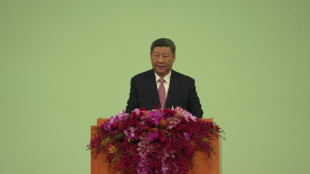
-
 Gauff, Paolini on fire as USA, Italy surge into United Cup quarters
Gauff, Paolini on fire as USA, Italy surge into United Cup quarters
-
Patients brave mental health desert in Mauritania
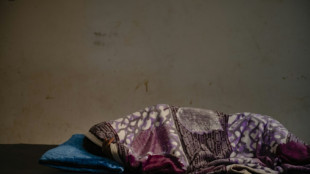
-
 Hart triple-double sparks Knicks to eighth straight NBA win
Hart triple-double sparks Knicks to eighth straight NBA win
-
Angelina Jolie and Brad Pitt reach divorce settlement: report

-
 Sabalenka opens season with 'tricky' win in Brisbane
Sabalenka opens season with 'tricky' win in Brisbane
-
S. Korea starts releasing Jeju Air crash victims to families

-
 China's frigid northeast thrives on 'little potato' tourism boom
China's frigid northeast thrives on 'little potato' tourism boom
-
Paolini on fire as Italy surge into United Cup quarter-finals


After life of trauma, Liberian lab chimps settle into retirement
Floating on a river boat near a Liberian island, vet Richard Ssuna watches intently as animal carers wade towards the shore hurling fruits and imitating chimpanzee calls as they go.
The beach is empty, but the sound of rustling and chimpish grunts begins to fill the green undergrowth. Slowly, an ape knucklewalks out onto the beach to grab some food.
He's a high-ranking member of his troop, explains Ssuna, as more chimpanzees follow. The younger ones gambol and hoot in delight as carers throw them bananas, palm nuts and cassava.
Sixty-five chimps are spread across six uninhabited river islands near the Atlantic Ocean, about 55 kilometres (34 miles) south of the West African country's capital Monrovia.
But their joy in feeding belies a dark past.
The chimps are the remainders of a group of about 400 ex-test subjects of a US-funded research project -- and have survived decades of invasive experiments. Some of the animals underwent several hundred biopsies.
"They were traumatised," says Ssuna, who's also a director of Humane Society International (HSI), a rights group that now cares for the primates.
Chimp testing in Liberia began 1974, when the New York Blood Center (NYBC) funded biomedical research related to hepatitis B and other diseases at a complex by the Farmington River.
During Liberia's devastating 1989-2003 civil war, the chimpanzees nearly starved to death as the country imploded around them.
Research staff in the impoverished country had to dig into their own pockets to provide basic sustenance.
The researchers retired many of the chimps to the river islands in the mid-2000s but their ordeal continued.
For reasons that remain unclear, NYBC cut funding in 2015 -- in a move that provoked global outrage -- abandoning the apes on the tiny river islands incapable of supporting them.
Activists picketed NYBC headquarters in New York and Hollywood stars such as Joaquin Phoenix and Ellen Page signed a petition urging the blood bank to reinstate funding.
Brian Hare, a US-based primatologist who launched the petition, wrote at the time: "Effectively they have left these poor chimpanzees to suffer from dehydration and starvation".
- 'Victim of torture' -
Liberia is one of the world's poorest countries, where 44 percent of the population lives on less than $1.90 per day, according to the World Bank.
Local staff at the research centre kept showing up to work to help the chimps when NYBC cut funding -- at a time when an Ebola epidemic was raging in Liberia. Rights groups and US financial giant Citigroup also provided relief funds during the turbulent period.
Under pressure, NYBC eventually struck an agreement to split the long-term care costs for the chimps with the Humane Society in 2017, pledging $6 million.
NYBC did not respond to questions from AFP about why it withdrew funding.
Years on, the former lab chimps now enjoy veterinary care and two daily meals. But many still bear the scars of their grim past.
At another island, during morning feeding, Ssuna points to a grizzled ape who's missing an arm. The vet says the animal is "essentially victim of torture."
The chimp, named Bullet, lost the limb as a infant when poachers killed his mother and ripped him from her arms. He then ended up at the research lab.
The carers are trained to form close attachments with the chimpanzees and to be gentle, explains Ssuna, who says certain stimuli can trigger negative memories in chimps, as in humans.
- Bright future -
None of the chimpanzees can be released into the wild, and are confined to the islands for life.
They never learned to fend for themselves and there are also fears they would spread disease if humans came into contact with them.
Keeping them fed is a serious operation.
Carers prepare about 200 kilogrammes (440 pounds) of food every morning, and 120 kilos (264 pounds) in the afternoon -- amounting to about 10 tonnes a month.
Care will continue until every ape on the islands dies, according to Ssuna.
He estimates that their lifelong care will last some 50 years. Many of the chimps are around 20 years old and have a lifespan of about 60.
There are also a small number of babies. HSI plans to vasectomise the males to prevent further births.
"The future is very bright, as much as we would like to leave them back in the wild," says Ssuna back on the mainland after the feeding, standing near the rusted animal cages of the old research complex.
"They’re in a better place."
D.Kaufman--AMWN